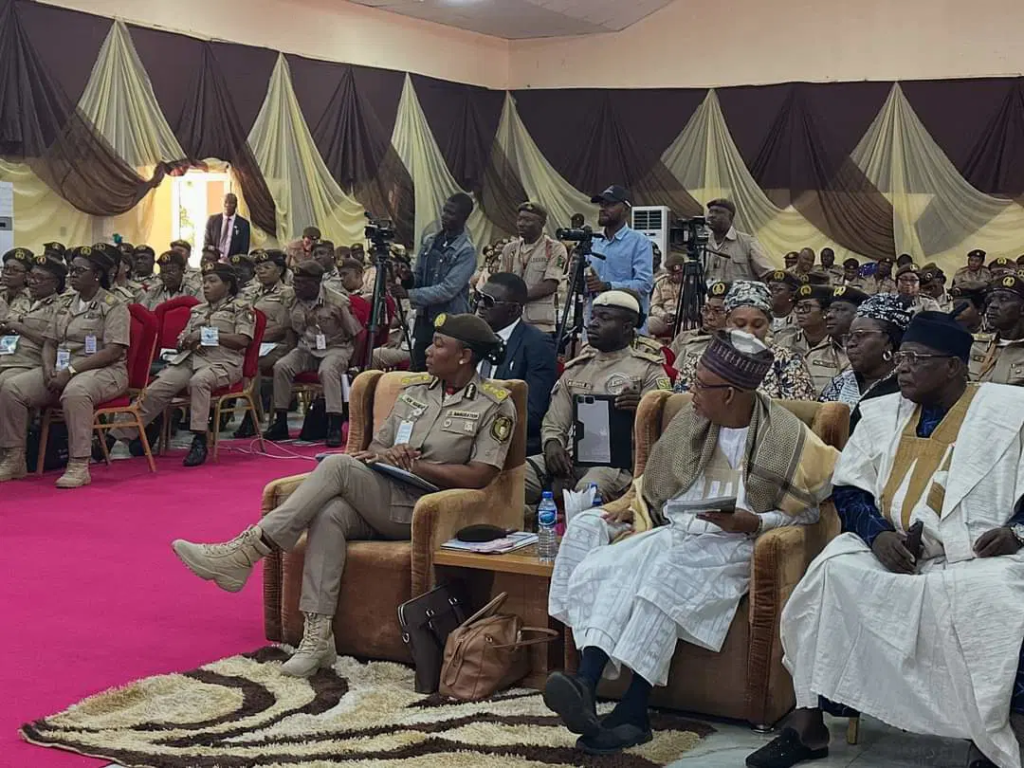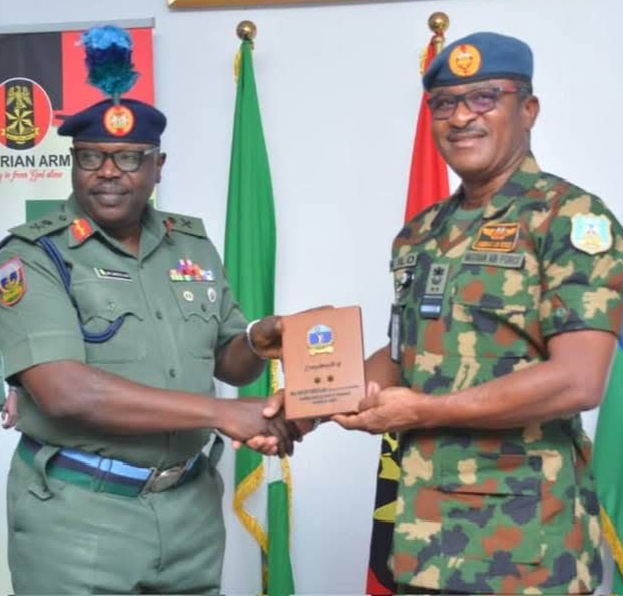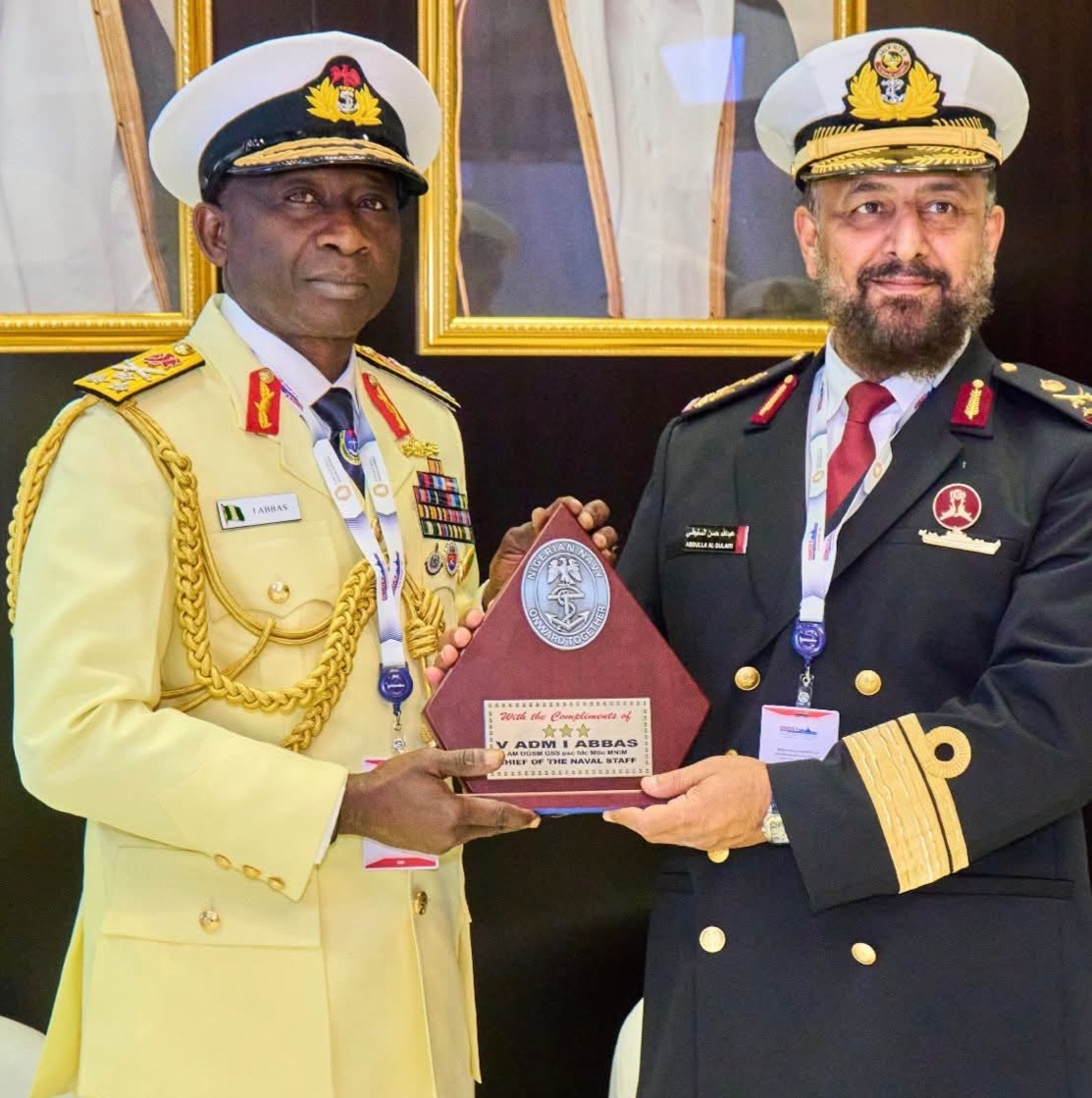
By Israel Fagbemigun
It has by so doing sustained its continuity and timely reinstatement after any hiatus. Through well timed retreats, seminars and conferences, once in a while punctuated by various challenges, each leadership of the agency has taken such introspective exercise a notch higher and targetted greater outcomes.

It is that tradition that the current leadership, under CGI Kemi Nanna Nandap, has made it mandatory to review, recalibrate and reconfigure the operations of the agencies under the very efficient, proactive supervising minister, Hon. (Dr.) Olubunmi Tunji-Ojo, and in line with the well-reasoned policy direction of the President, His Excellency Bola Ahmed Tinubu.
That must have been the reason the current Comptroller-General restarted the Comptroller General’s Conference, after a short lull, and beamed the searchlight on the pressing importance of border security in an era of rapid technological advancements.
Her goal, it became apparent, is to keep these stock-taking initiatives active and impactful. It was not just about the conference but about putting its recommendations to use for more efficiency and effectiveness. The resolutions arrived at attest to the NIS’s commitment to evolving with the times, not merely to react to threats but to anticipate them.
Central to the conference outcomes was the agency’s push to harness cutting-edge technology, a move that positions the NIS as a forward-thinking player in the nation’s security framework.
By prioritizing automated visa issuance and passport processing, the service aims to streamline migration management—a necessary modernization given the scale of cross-border movements. Beyond the practical benefits, such measures are a proactive response to rising cyber threats and the shifting nature of global migration. These technological advancements send a clear message: Nigeria is ready to manage the complexities of modern migration with efficiency and foresight.
In the global context, Nigeria’s efforts resonate with international initiatives to enhance border security through technology. The United States, for instance, has implemented advanced cargo scanners, surveillance technologies, and biometric identification devices. Similarly, the European Union is exploring swarm intelligence algorithms and data processing for networked self-flying drones.
These and many more the NIS is focussed on replicating and improving upon.
The most recent NIS conference also highlighted more. It made a commitment to aligning NIS operations with Nigeria’s economic ambitions. By tailoring policies to attract Foreign Direct Investments (FDIs) and boost tourism, the NIS is not only enhancing national security but also supporting the nation’s economic growth.
This alignment is no small achievement; it requires the NIS to balance strict border protocols with a welcoming environment for legitimate travelers and investors. Such an approach exemplifies the agency’s understanding of its dual role in safeguarding national interests while fueling economic opportunities.
Yet, the NIS is refocussing on the well-being and professionalism of the immigration workforce. Aware of the sacrifices and challenges faced by its officers, the NIS is actively working to cultivate a motivated and disciplined team, essential to its mission.
To give vent to this, the recent conference highlighted plans for better health insurance, pension packages for retirees, and sustained professional development. The rationale behind this planned emphasis is the acknowledgement that a well-supported staff is the backbone of any successful security initiative.
What became obvious from the 2024 Comptroller-General’s Conference organised under the leadership of CGI Kemi Nanna Nandap is that a new intent has been declared outside the reaffirmation of mission of the service.
The resolutions distilled for immidiate actions reflect a service ready to adapt, innovate, and collaborate in a world where borders are increasingly both physical and digital. This cannot just be policy ennunciation alone, it should be a path to a secure and prosperous future of the NIS.
This year’s edition of the annual Comptroller-General’s Conference could therefore be rightly said to be a strategic pivot for the Nigeria Immigration Service in an era where globalization both opens doors and blurs borders.
It is an effort to recaliberate so that the over 4,000 kilometers of land and coastal frontiers that makes up Nigeria could be safeguard, through innovation, collaboration, and resilience.
Israel Fagbemigun is an Abuja-based multimedia journalist, he can be reached via honisrael89@gmail.com






